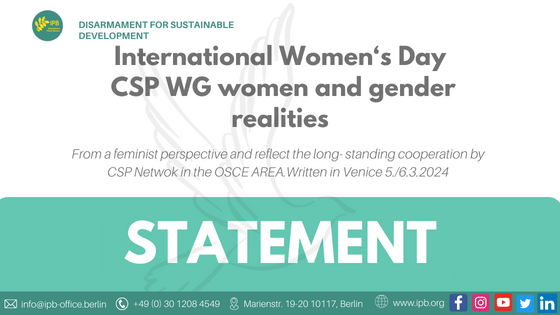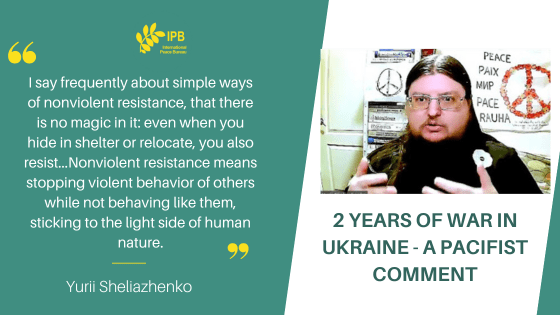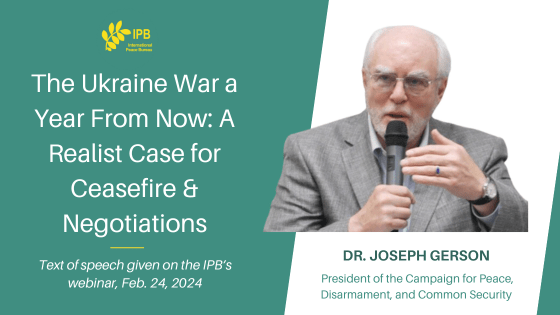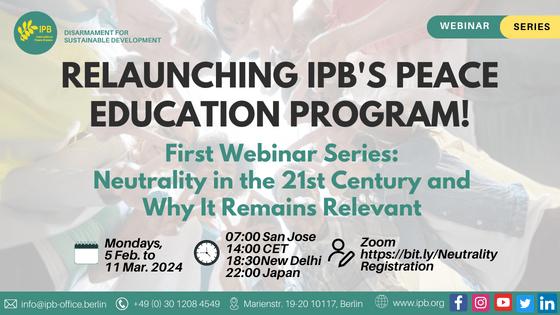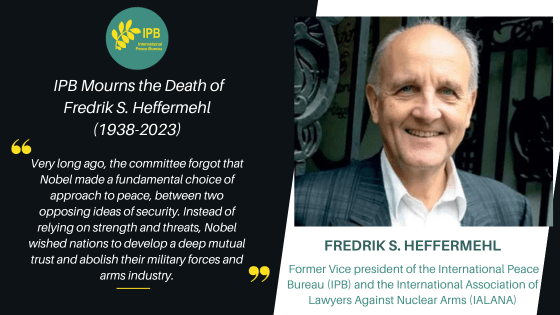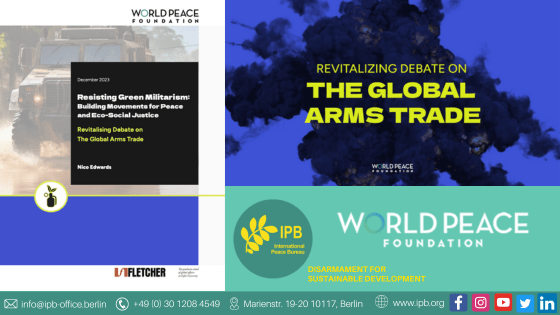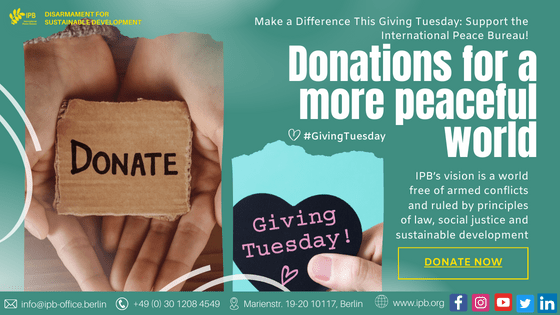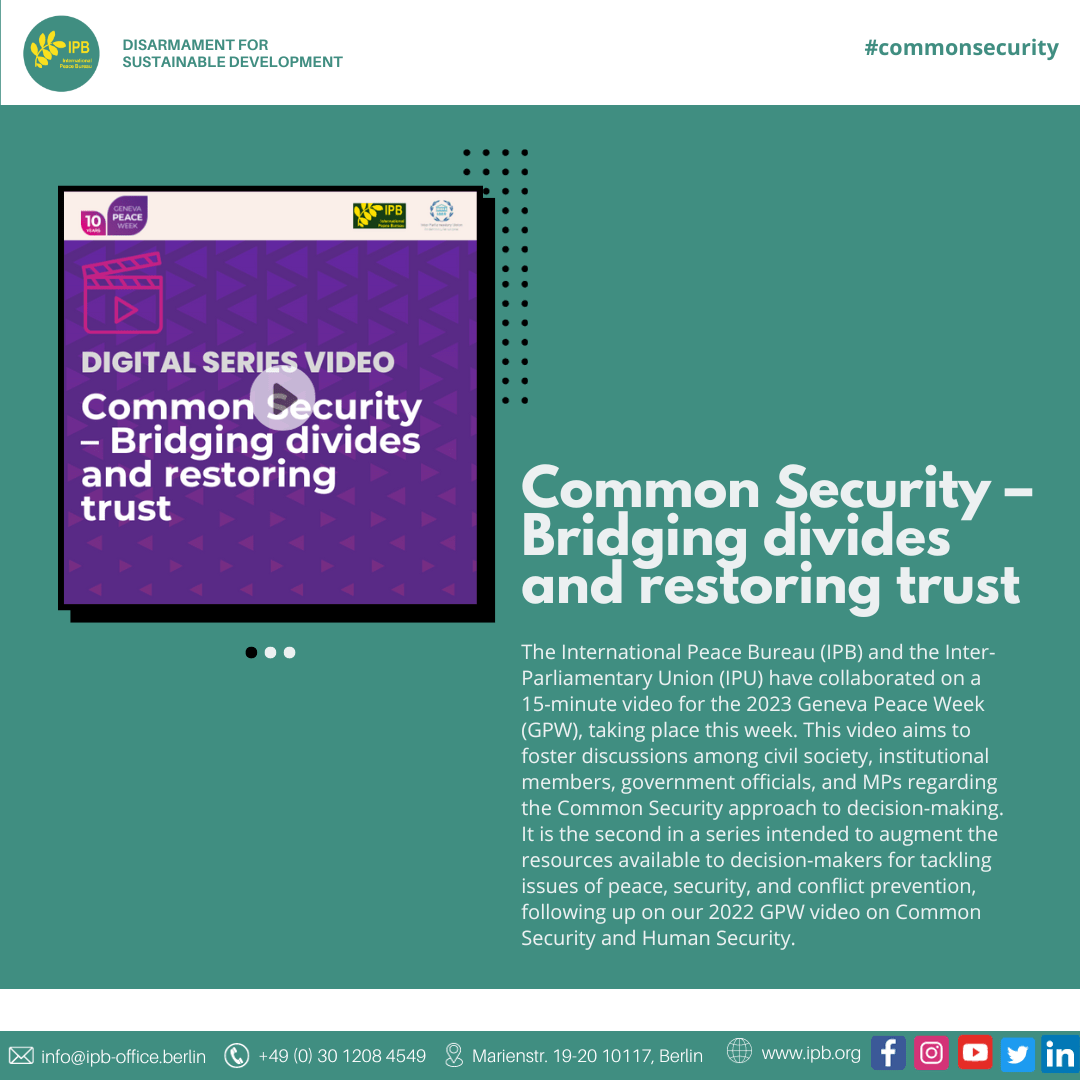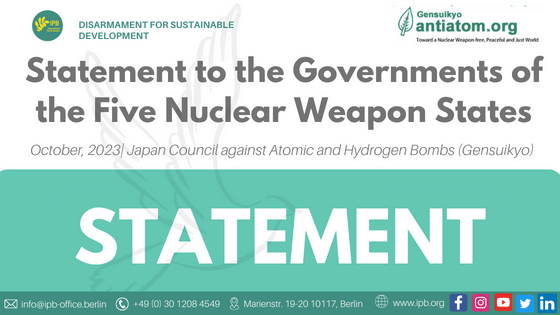October, 2023| Japan Council against Atomic and Hydrogen Bombs (Gensuikyo)
Tokyo, Japan – Following the opening of the 78th Session of the UN General Assembly, the commemoration of the International Day for the Total Elimination of Nuclear Weapons on September 26 and the start of the First Committee deliberations in the first week of October, discussion on disarmament and security has started.
The world is now facing a grave crisis, such as the continuing war, killing and destruction as seen in the war in Ukraine, the danger of threat or use of nuclear weapons, intensifying confrontation and tension between nuclear powers, the expansion of military alliances and blocs, buildup of nuclear arsenals in the name of “modernization,” huge military expenditures totaling $2.24 trillion and massive arms buildup, etc. All of them run counter to the principles of the UN Charter and the desire for peace of the peoples of the world.
At the same time, the world is witnessing an overwhelming majority of public opinion to call for peaceful resolution of international conflicts, the prohibition of threat or use of force and a total ban and the elimination of nuclear weapons in defiance of retrogression of history. In addition, backed by this public opinion, the overwhelming majority of countries are continuing their efforts to achieve a “world without nuclear weapons”, based on the agreements made at the UN General Assembly and the NPT review conferences.
Nuclear-weapon-free zones were already established on five continents of the world and persistent efforts are continuing to achieve denuclearization of conflict-ridden regions such as the Middle East. The Treaty on the Prohibition of Nuclear Weapons (TPNW) that was adopted in the UN, entered into force in January 2021, and with 92 signatories and 68 ratifiers, it has already begun to function as a substantive international law. The Second Meeting of States Parties to the TPNW is scheduled to open at UN Headquarters in New York on November 27.
The deliberations of the 78th UN General Assembly must be an opportunity to overcome the crisis facing humanity, restore peace and security, achieve a total ban and the elimination of nuclear weapons and drastic disarmament. These resources must be used for the well-being of humanity and to resolve the global issues we face, including those of environment, food, inequality and energy. To this end, the responsibility of the five nuclear weapon states is particularly grave, as they occupy permanent seats on the UN Security Council and are obligated under the NPT to conclude negotiations to cease the nuclear arms race and achieve nuclear disarmament.
While opposing the development, acquisition and possession of nuclear weapons by other countries, the nuclear weapon states claim that their nuclear weapons “guarantee security,” “deter aggression,” and “prevent war.” However, nuclear weapons not only fail to “deter” aggression and war, but on the contrary, escalate the danger, and if used, could even lead to the annihilation of the human race. The current situation itself clearly demonstrates this danger.
The war that led to the tragedies of Hiroshima and Nagasaki in 1945 was caused by Japan’s aggression, but most of the 210,000 people killed by the two atomic bombs and many more who survived and became the Hibakusha, were civilians. Such sacrifices must never be repeated in any country. To this end, we request your governments to do the following:
- To abide by the UN Charter, which stipulates the settlement of international disputes by peaceful means, to immediately end war, and to never threaten or use force, especially nuclear weapons.
- To reaffirm and implement the first resolution of the UN General Assembly pledging the elimination of atomic weapons from national arsenals, the unequivocal undertaking to “accomplish the total elimination of their nuclear arsenals” agreed to at the NPT Review Conference in May 2000, and the agreement reached in 2010 to make special efforts to achieve “the peace and security of a world without nuclear weapons” and to create a “framework” to achieve this goal; To immediately commence negotiations on NPT Article VI, “Effective measures relating to nuclear disarmament” and to “bring them to a conclusion” in accordance with the Advisory Opinion of the International Court of Justice.
- To recognize the TPNW as a “framework” for realizing a world without nuclear weapons, and to initiate procedures to support, sign and ratify the Treaty; To end reliance on the “nuclear deterrence” and “extended nuclear deterrence” policies that are actually aimed at threat or use of nuclear weapons.
- To participate as observers in the Second Meeting of States Parties to the TPNW and cooperate in its success.
Japan Council against A and H Bombs (Gensuikyo):
Tel: +81-3-5842-6034 Fax: +81-3-5842-6033
Email: antiatom@topaz.plala.or.jp
Location: Heiwa-to-Rodo-Center 6F, 2-4-4, Yushima, Bunkyo-ku, Tokyo 113-8464 JAPAN
Website: Website: http://www.antiatom.org/english/profile

